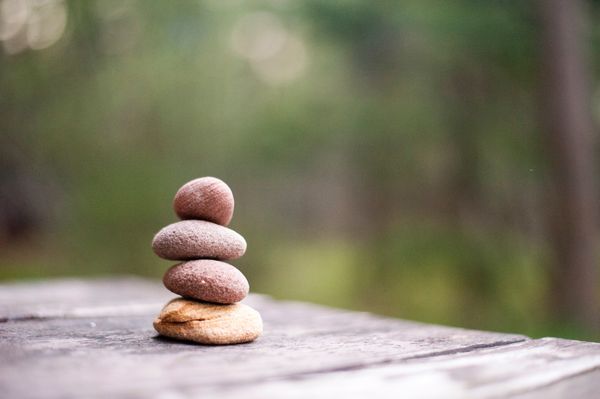Sleep is undoubtedly one of the best things for your mind, body, and spirit. It recharges your brain and restores your cells and repairs your muscles. Sleep is the backbone of any healthy lifestyle — it's become the foundation for maintaining my sanity since we were sent home from school in March. I'm no stranger to the difficulty of falling asleep or waking up frequently throughout the night, and as COVID-related and school-related anxieties seem to be on the uptick, the weeks leading up to move-in saw sleep as more elusive than before. After moving into my dorm, solid sleep seemed scarce and erratic. One day I'd be fine and the next I would lay awake for hours. So, after a lot of trial and error, I've compiled a brief list of things that help me sleep well.
1. Move your pillow
Whether you flip around and sleep with your head by the foot of your bed, find a couch, or just sleep on the floor, sometimes a little change of scenery can do wonders. For me, if I'm having an especially hard time sleeping, the first thing I do is put my pillow at the foot of my bed and try there. Sometimes, all it takes is just removing your pillow altogether and sleeping without one. I can't tell you what it is about moving out of your usual sleeping position and I can't guarantee it'll work, but try it out and you might find yourself fast asleep before you know it.
2. Move around
Get out of bed! Time and time again you'll see everyone from doctors to bloggers begging you to get out of bed if you can't sleep. While I don't stick to this religiously and will frequently just lay in bed when I can't sleep, sometimes getting up and moving around can be a great help. Walk down the hallway, pace around the room, stare out the window. Maybe stretch and do some yoga. Then, when you feel less wound up, try again.
3. Take something
Recently I've stopped regularly using melatonin to help me sleep. For the first three days, after I stopped taking it, I slept terribly. After that, I was sleeping better than before. Whether that be because I didn't have to worry about becoming dependent or for some other reason to do with my body just being more ready to sleep, I'll only use it now as a last resort for when I really need to sleep but can't. Even so, it sometimes seems like taking melatonin doesn't help at all. When taking a sleep supplement, it works best when taken an hour or so before sleeping. On top of that, sitting on your phone or using your computer could defeat the purpose because of the blue light emitted from the screens.
4. Read a book or watch some TV
I know screens before bed is bad because of the blue light, but I've found that alternating between reading before bed and watching TV has given me the best results when it comes to sleep. Sometimes, reading won't relax me as much as it would bore me, and sometimes I even felt less relaxed after reading. After I realized that, I started watching parts of a movie or TV shows before bed, which tended to be gentle enough on the mind to take my mind off of anxieties. Plus, when college starts to feel a little too much like living in a bubble or I'm stressing about homework, a little bit of Netflix seems to do the trick.
5. Stay out of bed during the day
This one is very important. I don't do anything except sleep and read and sometimes watch TV in my bed, and I never get in my bed during the day. If I could take naps I would, but since I can't I limit my time in bed to relaxing before I sleep and sleep. If I can't sleep I get out of bed and sit at my desk and do some light work and sometimes I'll read.
6. Plan out your week
Not only does giving my week structure help with general anxiety, but it also helps me to keep track of everything going on so I don't have to worry about it as I'm falling asleep. This also helps me to stay on top of due dates, which can be a source of unneeded anxiety if I don't have everything in order.
7. Use a journal
I love journaling, but I've always been terrible at sticking to it. Recently, I've found that journaling about my day, my worries, and what I'm expecting tomorrow really help me take my thoughts from my head. When I store them on the paper it helps me to process what all has happened and what I can expect to come, and again I don't have to worry about the anxiety sticking with me as I'm trying to sleep. On top of that, I practice gratitude in my journals and have become a big fan of list-making in my journal. From a list of songs that have helped me through the semester to possible Halloween costumes or even just a to-do list for the next day, list-making is relaxing and grounding.
Thinking ahead and developing a nighttime routine has done wonders for my sleep and for my overall wellbeing. So, while the first three points in the list are great, implementing the last four can help prevent sleepless nights.



















